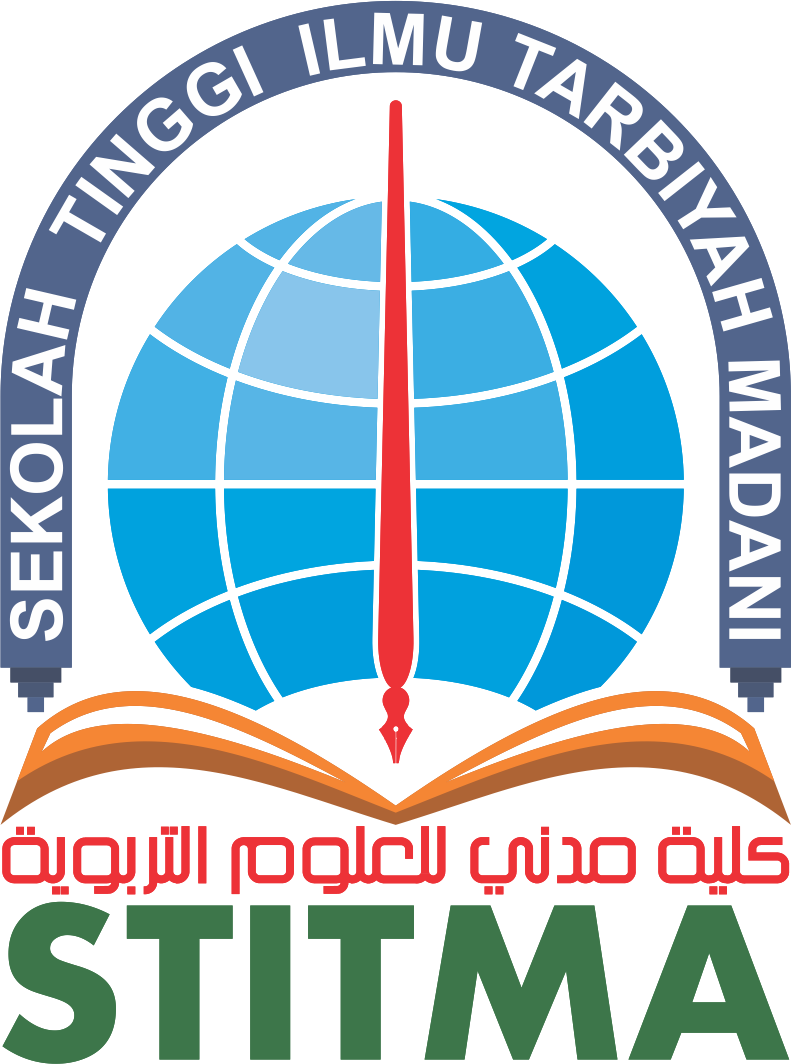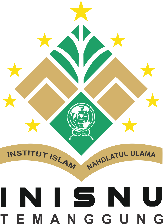The role of the muhammadiyah diaspora in global islamic education and the dissemination of progressive islam
DOI:
https://doi.org/10.59944/amorti.v4i4.485Keywords:
Muhammadiyah Diaspora, Global Islamic Education, Da'wah Strategy, Progressive Islam ChallengesAbstract
This study describes the role of the Muhammadiyah diaspora in supporting global Islamic education and spreading progressive Islamic values. The research was carried out with a qualitative approach through literature studies, by collecting data from various literature, official documents, and online databases, which were then analyzed using content analysis techniques. The findings show that the Muhammadiyah diaspora plays an active role in organizing formal, non-formal, and informal education that is adjusted to the social, cultural, and political situation of the community in the destination country. The da'wah strategy implemented includes academic, cultural, and digital approaches, so that the message of Islam that is moderate, inclusive, and contextual can be conveyed widely. On the other hand, they face challenges in the form of limited resources, differences of internal views, strict government policies against religious minority groups, and negative stigma against Islam in some countries. Nevertheless, the diaspora is able to maintain its identity by strengthening internal communication, fostering cadres in an ongoing manner, establishing cross-organizational cooperation, and adapting to local culture without ignoring the basic principles of Islam. This study concludes that the Muhammadiyah diaspora has succeeded in combining tradition and modernity in its role as an agent of spreading progressive Islam, as well as opening up space for further research on the contribution of the next generation of the diaspora in the future.
References
Abdul Mu’ti. (2023). Muhammadiyah adalah Gerakan Islam yang Mendunia. Suara Muhammadiyah. https://www.suaramuhammadiyah.id/read/abdul-mu-ti-muhammadiyah-adalah-gerakan-islam-yang-mendunia
Abdurrahman, Q., & Badruzaman, D. (2023). TANTANGAN DAN PELUANG DAKWAH ISLAM DI ERA DIGITAL. KOMUNIKASIA: Journal of Islamic Communication and Broadcasting, 3(2), 152–162. https://doi.org/10.32923/kpi.v3i2.3877
Adebayo, R. I. (2015). The historical development and challenges of Islam in Ila-Orangun, Nigeria. Indonesian Journal of Islam and Muslim Societies, 5(1), 1. https://doi.org/10.18326/ijims.v5i1.1-28
Agustari, A., & Ulinnuha, R. (2023). Analisis Isu Islamophobia Di Jerman: Studi Kasus Muhammadiyah Sebagai Organisasi Gerakan Islam Modernis Indonesia. MAWA IZH JURNAL DAKWAH DAN PENGEMBANGAN SOSIAL KEMANUSIAAN, 14(1), 75–103. https://doi.org/10.32923/maw.v14i1.3097
Agustiar, Zaid Barzenji, Ali Saif, Bassam Badar Ja’far Al Kutsairi, Umar Ahmad Salem, & Ibrahim bin Salem. (2024). Fiqh of diversity in the frame of tolerance as a pillar of indonesian integrity. Amorti: Jurnal Studi Islam Interdisipliner. https://doi.org/10.59944/amorti.v3i2.296
Amrullah. (2024). TRANSFORMASI DIGITAL DALAM PENDIDIKAN AGAMA ISLAM: KAJIAN IMPLEMENTASI METAVERSE SEBAGAI MEDIA PEMBELAJARAN INTERAKTIF. In SCHOLASTICA: Jurnal Pendidikan dan Kebudayaan (Vol. 6, Issue 2).
Anam, M. Z., Munir, A. N., & Hidayat, R. R. (2022). Muhammadiyah Diaspora Diplomacy in Protecting Indonesian Migrant Workers in Malaysia. Jurnal Hubungan Internasional, 11(1), 1–18. https://doi.org/10.18196/jhi.v11i1.12533
Ardhianto, Y., Sukiman, & Abdunrorma Sama Alee. (2024). The significant role of muhammadiyah in the development of education in indonesia. Amorti: Jurnal Studi Islam Interdisipliner, 123–127. https://doi.org/10.59944/amorti.v3i3.306
Arifin, S., Mughni, S. A., & Nurhakim, M. (2022). The Idea of Progress: Meaning and Implications of Islam Berkemajuan in Muhammadiyah. Al-Jami’ah: Journal of Islamic Studies, 60(2), 547–584. https://doi.org/10.14421/ajis.2022.602.547-584
Cohen, R. (2022). Global Diasporas. Routledge. https://doi.org/10.4324/9781003256526
Faisol Hakim, Bahrudin, B., & Suwandi, M. A. (2023). Local Wisdom Values in the Tradition of Tedhak Siten in the Era of Globalization. Amorti: Jurnal Studi Islam Interdisipliner. https://doi.org/10.59944/amorti.v2i4.239
Giannakas, F., Troussas, C., Krouska, A., Voyiatzis, I., & Sgouropoulou, C. (2023). Blending cybersecurity education with IoT devices: A u-Learning scenario for introducing the man-in-the-middle attack. Information Security Journal: A Global Perspective, 32(5), 371–382. https://doi.org/10.1080/19393555.2022.2100297
Guspian, I., Noviyanti, I., & Aryansyah, A. F. (2024). Analisis Perkembangan Teknologi dan Tren Terkini Pada Platform Metaverse dalam Pendidikan: Perspektif Manajerial. Jurnal Riset Dan Inovasi Pembelajaran, 4(3), 1697–1714. https://doi.org/10.51574/jrip.v4i3.2059
Hendriyani, M., Artini, N. M., & Tatyana, T. (2021). DAMPAK PANDEMI COVID 19 TERHADAP DUNIA PENDIDIKAN. KOMPLEKSITAS: JURNAL ILMIAH MANAJEMEN, ORGANISASI DAN BISNIS, 10(2), 13–21. https://doi.org/10.56486/kompleksitas.vol10no2.128
Khozin, K., Haris, A., & Asrori, A. (2021). Pengembangan Integrasi Kurikulum. TADARUS, 10(1). https://doi.org/10.30651/td.v10i1.9090
Kusmidi, H. (2023). An Overview of Islam and Religious Moderation: Concept, Principles, and Indicators. Jurnal Ilmiah Syi’ar, 22(2), 168. https://doi.org/10.29300/syr.v22i2.8752
Lichterman. (2005). The Blackwell Companion to the Sociology of Culture (M. D. Jacobs & N. W. Hanrahan, Eds.). Blackwell Publishing Ltd. https://doi.org/10.1002/9780470996744
Manshuruddin, M. (2022). PENDIDIKAN ISLAM MUSLIM MINORITAS: KASUS AMERIKA SERIKAT. JURNAL PENDIDIKAN ISLAM AL-ILMI, 5(2), 124. https://doi.org/10.32529/al-ilmi.v5i2.2110
Miles, M. B., Huberman, • A Michael, & Saldaña, J. (2014). Qualitative Data Analysis A Methods Sourcebook Edition.
Muttaqien, A. I., & Surwandono, S. (2024). Comparative Analysis of Gulen Movement and Muhammadiyah: Their Internationalization Strategies and Integration with Governmental Systems. Jurnal Hubungan Internasional, 13(1), 31–46. https://doi.org/10.18196/jhi.v13i1.17998
Nashihin, H., & Dewi, P. A. (2019). TRADISI ISLAM NUSANTARA PERSPEKTIF PENDIDIKAN MULTIKULTURAL (Vol. 03, Issue 02).
Nasir, M., & Rijal, M. K. (2021). Keeping the middle path: mainstreaming religious moderation through Islamic higher education institutions in Indonesia. Indonesian Journal of Islam and Muslim Societies, 11(2), 213–241. https://doi.org/10.18326/ijims.v11i2.213-241
Prasetiawati, E. (2017). URGENSI PENDIDIKAN MULTIKULTURAL UNTUK MENUMBUHKAN NILAI TOLERANSI AGAMA DI INDONESIA.
Putra, & Himad Ali. (2024). A critical review of model of tajdid and tajrid muhammadiyah movements. Amorti: Jurnal Studi Islam Interdisipliner, 117–122. https://doi.org/10.59944/amorti.v3i3.307
Qodir, Z. (2019). ISLAM BERKEMAJUAN DAN STRATEGI DAKWAH PENCERAHAN UMAT. Jurnal Sosiologi Reflektif, 13(2), 209–234. https://doi.org/10.14421/jsr.v13i12.1630
Qodir, Z., Nashir, H., & Hefner, R. W. (2023). Muhammadiyah making Indonesia’s Islamic moderation based on maqāṣid sharī`ah. Ijtihad : Jurnal Wacana Hukum Islam Dan Kemanusiaan, 23(1), 77–92. https://doi.org/10.18326/ijtihad.v23i1.77-92
Ridho Al-Hamdi, I. M. N. N. H. Moh. M. (2022). Internasionalisasi Muhammadiyah: Sejarah dan Dinamika Pimpinan Cabang Istimewa Muhammadiyah Luar Negeri 2002-2022 (Vol. 1).
Saefurohman, A. (2023). MUHAMMADIYAH AUSTRALIA COLLEGE: ANTARA INTERNASIONALISASI DAN MULTITRACK DIPLOMACY. JISIERA: THE JOURNAL OF ISLAMIC STUDIES AND INTERNATIONAL RELATIONS, 6. https://doi.org/10.5281/zenodo.10031282
Saichu, A., Afada, N., Sulthon, M., Ilham, M., & Mutiaramadhan, A. (2025). Community harmony strengthening through selapanan mentoring of badko tpq in margolelo village. In Jurnal Studi Islam Interdisipliner (Vol. 4, Issue 1). http://journal.amorfati.id/index.php/amorti||ISSN2962-920929https://journal.amorfati.id/index.php/amorti
Setyabudi, M. N. P. (2019). MEMPERLEBAR BATAS TOLERANSI DAN MEMBELA HAK MINORITAS (TELAAH ATAS KARYA AHMAD NAJIB BURHANI). Harmoni, 18(1), 570–588. https://doi.org/10.32488/harmoni.v18i1.347
Siregar, R. F., & Pasaribu, M. (2023). Diaspora Pendidikan Agama Islam di Pusat Pendidikan Warga Negara Indonesia Klang Malaysia. EDUKATIF : JURNAL ILMU PENDIDIKAN, 5(4), 1747–1757. https://doi.org/10.31004/edukatif.v5i4.5524
Tasman Hamami. (2021). Muhammadiyah and Nahdlatul Ulama Education: Two Main Pillars of National Education in Indonesia. Jurnal Pendidikan Agama Islam, 18(2), 307–330. https://doi.org/10.14421/jpai.2021.182-06





























